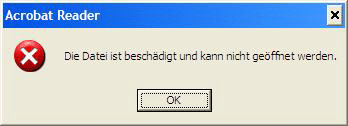BKDR_MATSNU.EJ
Trojan:Win32/Bumat!rts (Microsoft), Trojan.Ransomlock.P (Symantec), TR/Jorik.Androm.pgr (Antivir), Trojan-Ransom.Win32.Blocker (Ikarus), Win32/Trustezeb.C trojan (ESET)
Windows 2000, Windows Server 2003, Windows XP (32-bit, 64-bit), Windows Vista (32-bit, 64-bit), Windows 7 (32-bit, 64-bit)


Threat Type: Backdoor
Destructiveness: No
Encrypted: Yes
In the wild: Yes
OVERVIEW
This backdoor arrives on a system as a file dropped by other malware or as a file downloaded unknowingly by users when visiting malicious sites.
It executes commands from a remote malicious user, effectively compromising the affected system.
TECHNICAL DETAILS
Arrival Details
This backdoor arrives on a system as a file dropped by other malware or as a file downloaded unknowingly by users when visiting malicious sites.
Installation
This backdoor drops the following copies of itself into the affected system and executes them:
- %User Temp%\{random file name 2}.pre - deleted afterwards
- %User Temp%\{random folder name}\{random 1}tvyz.exe
(Note: %User Temp% is the current user's Temp folder, which is usually C:\Documents and Settings\{user name}\Local Settings\Temp on Windows 2000, XP, and Server 2003, or C:\Users\{user name}\AppData\Local\Temp on Windows Vista and 7.)
It adds the following mutexes to ensure that only one of its copies runs at any one time:
- LDRBCCE01
It injects codes into the following process(es):
- svchost.exe
- ctfmon.exe
- explorer.exe
Autostart Technique
This backdoor adds the following registry entries to enable its automatic execution at every system startup:
HKEY_CURRENT_USER\Software\Microsoft\
Windows\CurrentVersion\Run
{random 2}tvyz.exe = "%User Temp%\{random folder name}\{random 1}tvyz.exe"
Backdoor Routine
This backdoor executes the following commands from a remote malicious user:
- Download and execute/load arbitrary .exe and .dll files
- Update itself
- Update C&C servers
- Delete ntldr and ntdetect.com, then wipe MBR
- Lock/unlock computer
It connects to the following URL(s) to send and receive commands from a remote malicious user:
- http://{BLOCKED}xrz.com/typo3.php
- http://{BLOCKED}ect-proxy.com/typo3.php
- http://{BLOCKED}nes.com/t.php
- http://{BLOCKED}line.com/t.php
- http://{BLOCKED}olderxx.com/forums.php
- http://{BLOCKED}bspace-apo.com/forums.php
- http://{BLOCKED}eg.com/forums.php
- http://{BLOCKED}k-gt.com/t po3.php
- http://{BLOCKED}xrz.com/typo3.php
- http://{BLOCKED}ect-proxy.com/typo3.php
- http://{BLOCKED}nes.com/t.php
- http://{BLOCKED}line.com/t.php
- http://{BLOCKED}olderxx.com/forums.php
- http://{BLOCKED}bspace-apo.com/forums.php
It posts the following information to its command and control (C&C) server:
- Disk serial number
- Attack status
- Location
- OS version
Other Details
This backdoor displays the following message boxes:

NOTES:
It terminates itself if the following string is found in its file path:
- sand-box
SOLUTION
Step 1
Before doing any scans, Windows XP, Windows Vista, and Windows 7 users must disable System Restore to allow full scanning of their computers.
Step 2
Restart in Safe Mode
Step 3
Delete this registry value
Important: Editing the Windows Registry incorrectly can lead to irreversible system malfunction. Please do this step only if you know how or you can ask assistance from your system administrator. Else, check this Microsoft article first before modifying your computer's registry.
- In HKEY_CURRENT_USER\Software\Microsoft\Windows\CurrentVersion\Run
- {random 2}tvyz.exe = "%User Temp%\{random folder name}\{random 1}tvyz.exe"
- {random 2}tvyz.exe = "%User Temp%\{random folder name}\{random 1}tvyz.exe"
Step 4
Restart in normal mode and scan your computer with your Trend Micro product for files detected as BKDR_MATSNU.EJ. If the detected files have already been cleaned, deleted, or quarantined by your Trend Micro product, no further step is required. You may opt to simply delete the quarantined files. Please check this Knowledge Base page for more information.
Did this description help? Tell us how we did.


